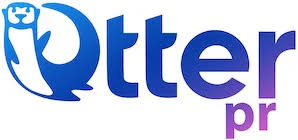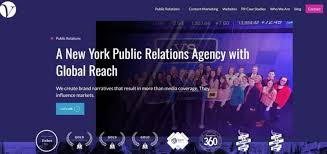The Rising Influence of PR in Modern Communication Strategies
The Rise of Public Relations (PR)
In today’s fast-paced and interconnected world, the role of Public Relations (PR) has become more crucial than ever before. PR is no longer just about managing a company’s reputation; it has evolved into a strategic communication tool that helps organisations build meaningful relationships with their stakeholders.
One of the key reasons behind the rise of PR is the growing importance of brand perception. In a highly competitive market, how a company is perceived by its target audience can make or break its success. PR professionals are experts in shaping and managing this perception, helping companies to establish a strong and positive brand image.
Another factor driving the rise of PR is the influence of digital media. With social media platforms, online news outlets, and blogs playing a significant role in shaping public opinion, companies need to have a strong online presence and engage effectively with their audiences. PR professionals are adept at leveraging digital channels to reach and influence target audiences.
Furthermore, in an era where transparency and authenticity are valued more than ever, PR plays a vital role in building trust with stakeholders. By communicating openly and honestly, companies can establish credibility and foster long-term relationships with customers, employees, investors, and the wider community.
The rise of PR also reflects a shift towards more personalised communication strategies. PR professionals understand the importance of tailoring messages to different audiences and engaging with them on a personal level. This approach not only helps companies connect with their stakeholders but also allows them to convey their values and beliefs effectively.
In conclusion, as businesses navigate an increasingly complex communication landscape, the role of Public Relations continues to grow in significance. By harnessing the power of strategic communication, companies can build strong relationships with their stakeholders, enhance their brand reputation, and ultimately drive success in today’s competitive market.
Six Key Advantages of Rise PR in Elevating Brand Success
- Enhances brand perception and reputation
- Helps companies establish strong relationships with stakeholders
- Utilises digital media effectively to reach target audiences
- Builds trust and credibility through transparent communication
- Personalises communication strategies for better engagement
- Drives success in a competitive market by shaping public opinion
Challenges of Rising PR: Costs, Miscommunication, Strategy Imbalance, and Trust Issues
- Increased competition in the PR industry can lead to higher costs for companies seeking PR services.
- Miscommunication or misinterpretation of messages by PR professionals can result in negative consequences for a company’s reputation.
- Overreliance on PR tactics may overshadow other important aspects of a company’s marketing and communication strategy.
- PR efforts that lack authenticity or transparency can be perceived as insincere by stakeholders, damaging trust and relationships.
Enhances brand perception and reputation
The rise of Public Relations (PR) has brought about a significant pro in enhancing brand perception and reputation for businesses. PR professionals are adept at shaping and managing how a company is perceived by its target audience, helping to establish a strong and positive brand image. By effectively communicating with stakeholders and engaging in strategic communication initiatives, PR plays a crucial role in building trust, credibility, and authenticity for brands. This proactive approach not only enhances brand reputation but also fosters long-term relationships with customers, employees, investors, and the wider community, ultimately contributing to the overall success of the business.
Helps companies establish strong relationships with stakeholders
The rise of Public Relations (PR) has proven to be a valuable asset for companies in establishing strong relationships with their stakeholders. By effectively communicating and engaging with various stakeholders, including customers, employees, investors, and the wider community, PR professionals help companies build trust, credibility, and loyalty. This strategic approach not only enhances brand reputation but also fosters long-term relationships that are essential for sustained success in today’s competitive business environment.
Utilises digital media effectively to reach target audiences
In the era of the rise of Public Relations (PR), one significant advantage is its ability to utilise digital media effectively to reach target audiences. PR professionals are adept at leveraging various online platforms, such as social media, websites, and online news outlets, to engage with and influence their target demographics. By harnessing the power of digital media, PR strategies can reach a wider audience, drive engagement, and create meaningful connections with stakeholders in a dynamic and ever-evolving communication landscape.
Builds trust and credibility through transparent communication
One significant advantage of the rise of Public Relations (PR) is its ability to build trust and credibility through transparent communication. By fostering open and honest dialogue with stakeholders, PR professionals help companies establish a strong foundation of trust. Transparent communication not only enhances credibility but also demonstrates a commitment to integrity and authenticity, which are essential in today’s business environment. Through transparent PR strategies, organisations can strengthen their relationships with customers, employees, investors, and the wider community, ultimately enhancing their reputation and long-term success.
Personalises communication strategies for better engagement
One significant advantage of the rise of Public Relations (PR) is its ability to personalise communication strategies for enhanced engagement. By tailoring messages to specific audiences and engaging with them on a more personal level, PR professionals can create meaningful connections that resonate with stakeholders. This personalised approach not only fosters stronger relationships but also allows companies to effectively convey their values and brand identity, ultimately leading to increased engagement and loyalty from their target audience.
Drives success in a competitive market by shaping public opinion
In a competitive market, the strategic use of Public Relations (PR) to shape public opinion can be a powerful tool that drives success for businesses. By effectively managing how a company is perceived by its target audience, PR professionals can influence public opinion in a way that sets the company apart from its competitors. This proactive approach not only helps to build a positive brand image but also enhances credibility and trust with stakeholders, ultimately giving businesses a competitive edge in the market.
Increased competition in the PR industry can lead to higher costs for companies seeking PR services.
As the prominence of Public Relations (PR) continues to rise, one notable drawback is the increased competition within the PR industry. This heightened competition can result in higher costs for companies seeking PR services. With more firms vying for clients and market share, PR agencies may raise their prices to reflect the demand for their expertise and services. This can pose a challenge for businesses, especially smaller ones with limited budgets, as they may find it more difficult to afford quality PR support amidst the competitive landscape. The escalating costs associated with PR services due to increased competition highlight a significant con that companies need to consider when engaging with PR agencies.
Miscommunication or misinterpretation of messages by PR professionals can result in negative consequences for a company’s reputation.
Miscommunication or misinterpretation of messages by PR professionals can have detrimental effects on a company’s reputation. Inaccurate or poorly conveyed information can lead to misunderstandings, damaging the trust and credibility that a company has worked hard to build with its stakeholders. It is essential for PR professionals to ensure that their messaging is clear, consistent, and aligned with the company’s values and objectives to avoid any potential negative repercussions on the brand’s reputation.
Overreliance on PR tactics may overshadow other important aspects of a company’s marketing and communication strategy.
An inherent con of the rise of Public Relations (PR) is the risk of overreliance on PR tactics, which may overshadow other crucial aspects of a company’s marketing and communication strategy. While PR plays a vital role in shaping brand perception and managing relationships with stakeholders, focusing excessively on PR efforts could lead to neglecting other key areas such as advertising, digital marketing, product development, and customer service. Companies must strike a balance between PR initiatives and a holistic approach to marketing and communication to ensure a comprehensive strategy that addresses all aspects of their business effectively.
PR efforts that lack authenticity or transparency can be perceived as insincere by stakeholders, damaging trust and relationships.
In the realm of rising PR practices, a significant drawback lies in the risk of PR efforts lacking authenticity or transparency. When communication strategies come across as insincere or misleading to stakeholders, they can erode trust and damage relationships. In an era where honesty and openness are highly valued, any perception of disingenuousness in PR campaigns can have detrimental effects on a company’s reputation and credibility. It is essential for organisations to ensure that their PR initiatives are rooted in authenticity and transparency to maintain trust with their audiences and uphold strong relationships in the long term.












